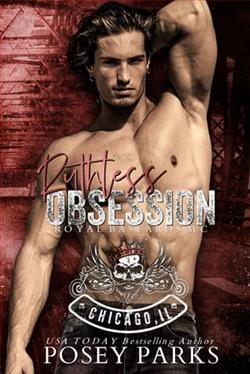Page 6 of High Season
Afterward, they stretched out on the ground, their skin wet and stinking of chlorine. The early evening sky was golden, and the water on their bare legs and stomachs glittered.
“Maybe their flight will get delayed,” said Josie.
“Maybe they’ll decide to stay in London this summer.”
“Maybe they’ll decide they’re sick of this house and give it to us.”
Josie nudged Hannah, her elbow sharp in her best friend’s ribs.
“You would hate if they didn’t come,” she said. “You’d be heartbroken. You’ve been counting down the days ’til Blake turns up.”
Hannah wriggled away from her.
“He might not even be coming this year,” she said.
Josie stretched her hands above her head, as if reaching for the last gasps of the day’s heat.
“He’ll be here,” she said. “He will.”
Just then came the distinctive sound of Josie’s mother’s voice, its wiry, perpetually anxious edge drifting down the hill.
“Josie May Jackson, what are you doing with that pool cover?”
They scrambled to their feet before Patricia Jackson could make it down the steps, pulling clothes over their damp bodies, laughing, scurrying to haul the pool cover back on, dashing out the side gate. Leaving only wet footprints behind.
Josie and Hannah first met when Josie was ten, Hannah eleven.
Josie was new to the town, her family having moved to the Côte d’Azur two weeks earlier. The total upending of Josie’s life back in the UK had come out of the blue. Her taxi-driver dad had met a bloke at the pub who told him that he could make good money working as a private driver for rich expats in the South of France, and within a month they were packing their bags.
Like many of the transitions in Josie’s life (their relocation from London to Kent after her dad remortgaged their house to invest in a timeshare company that never got off the ground; the time she and her brother had to leave the school her mum said she’dmoved heaven and earthto get them into when her dad got into a physical fight with the head teacher at parents’ evening; the summer he’d taken them all to Disneyland and then they’d had to do a midnight flit because he’d borrowed the money from a dodgy moneylender to pay for it), the move was characterized by a flurry of hope and optimism followed by a shift to quiet fury and disappointment. They arrived in autumn to find the beaches empty, the village quiet, the flurry of high seasonstilled. Most of the people who owned the sprawling holiday homes had already gone home for winter, and the work that Josie’s dad had been promised failed to materialize. Instead, he would spend all day at home, smoking at the kitchen table, cracking open bottles of beer at increasingly early hours of the afternoon. Josie found herself leaving the house more and more often to escape the simmer of tension. She ventured along coastal paths, climbed the trees that lined the winding road to their house. She could stay out for hours, if she had to. Often, she felt like she did.
The first day that Josie met Hannah was a Saturday, the temperature cool, the streets silent. Josie had been able to feel the threat of an argument settling between her parents in the same way that you can feel moisture in the air before a storm. The heaviness had sent her scurrying out of the house and—in an effort to fill time—down toward the beach.
She was remembering how her dad had taken the whole family there on their first morning in France, loud and grinning, buying her and her brother ice cream even though it wasn’t quite warm enough, treating her mum to a brand-new swimming costume from one of the boutiques that lined the seafront still making the most of end-season stragglers. They had been happy. Excited. Her dad had said how great it would be for Josie and her brother, Calvin, to grow up so close to the sea. Josie had dripped ice cream down her T-shirt, and her mum hadn’t even gotten cross about it. In fact, she had been beaming, pink-faced, looking at Josie’s dad in a way that she rarely did anymore.
Josie wanted the peace and hope of that day to return. She felt, somehow, that if she could make it to the beach, things might feel all right again.
She found her way to the town easily, navigating the rows of shuttered-up restaurants and shops. She located the road that ran parallel to the sea, but somehow couldn’t find the path that led onto the beach. She walked up and down and only found rows of pastel-painted buildings, doors with FERMÉ POUR L’HIVERscrawled on hand-painted signs. Her shoes were beginning to rub, and there was a tightness in her chest. She thought again of her parents arguing. The black mood that had descended on their new home. Shehadto find the beach.
That was when she saw a girl sitting on the front terrace of a shop, her head bent over an exercise book. Long, bare legs and strawberry-blond hair. Snorkels and wetsuits strung up above her, swinging in the breeze.
“’Scuse me,” Josie called out. “Do you know the way to the sea?”
The girl’s head jerked up. She frowned. She had light gray eyes, sun-bronzed skin.
“Yeah,” the girl said slowly. “You just need to take the footpath, at the end of the street.”
She lifted her biro to point toward a row of shops.
“It looks like an alley at first. Down the side of that blue house on the left?”
Josie nodded.
“Oh yeah,” she said, trying to sound like she’d simply forgotten. “Thanks.”
She knew that she looked out of place here, with her scruffy ponytail and bitten-down fingernails. Skin that was scorched with freckles, a dead giveaway that she hadn’t spent much time in the sun. Not knowing her way to the sea was surely unforgivable, a sign that she was an outsider.
“Wait.”















